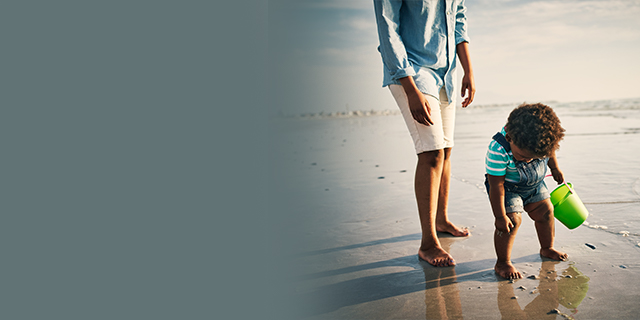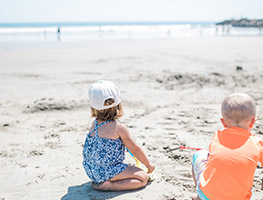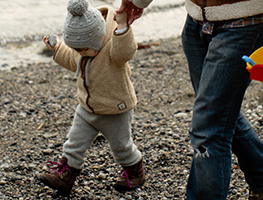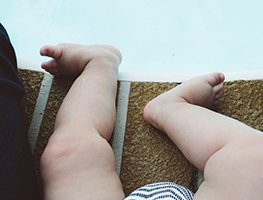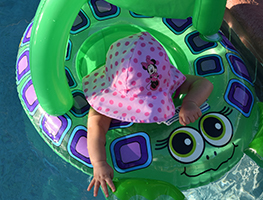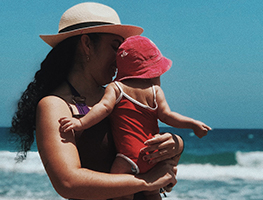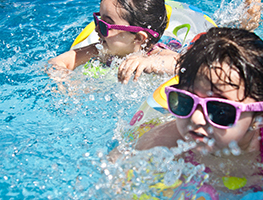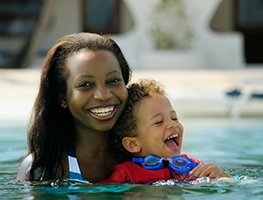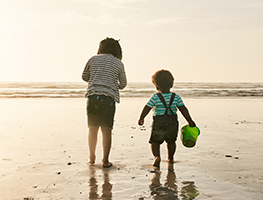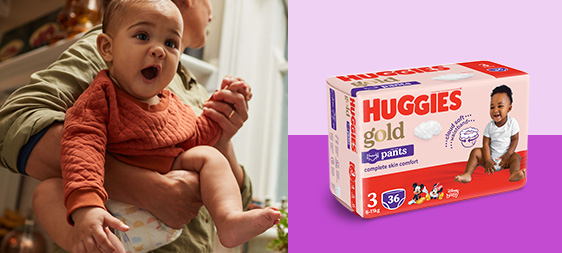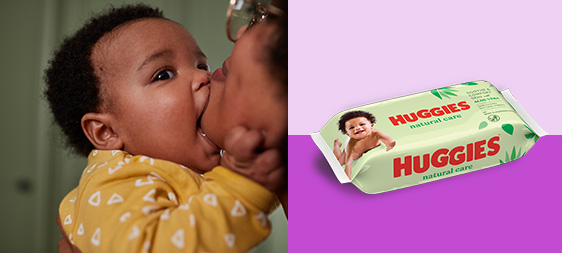Learning and understanding beach safety and how the ocean works is important for you, and it’s a key thing that your child should learn as early as possible. Waves, winds and tides can all affect the conditions of the surf and, if you can recognise some menacing signs, you will be able to take action and prevent any harm coming to you or your child.
A great way to instil beach safety practices in your child is to lead by example, in addition to explaining to your kids how dangerous the beach can actually be. Your child is likely to copy whatever you do, so the first part of beach safety for your child is following the rules yourself. One of the biggest beach safety principles is to only swim at beaches where lifeguards are present. Drowning is much more likely to occur at unpatrolled beaches. Hundreds of families go to the beach everyday without any kind of incident. However, don’t let that lull you into a false sense of security, there are potentials for danger everywhere, from rough waves, to strong rips, stinging creatures and even the sun.
What to do to be safe at the beach?
One of the most important things you can do to make sure you and your child are safe at the beach is to swim between the flags (normally red and yellow in colour) which demarcate the area the lifeguards have found is safe for swimming and is patrolled by the lifeguards. This is where you will get the fastest assistance if you find yourself in trouble. You should also pay attention to the surf condition signs around the beach, as well as any other cautionary information before getting into the water.
Waves can also be pretty damaging, don’t just jump straight into one, be cautious, especially where big waves break in shallow waters. A ‘rip’ is a strong underwater current that may drag you along the beach. Don’t try to swim against the rip, just go with the current or swim parallel to the shore, and it should eventually take you back to shore or release you. If you do get into trouble, put your hand up and try get the attention of the lifeguard on duty.
Bluebottles might seem cool and fun to play with to your child, but you should try to avoid them as much as possible as they can inflict a nasty sting. Show your child one, explain that these are dangerous and if touched will cause an ‘ouch’. They usually hit the beaches during high tide in the summer months, although they may arrive at the beach anytime during the year. Occasionally there are signs along the beach if bluebottles are present; if that’s the case, it might be wise to stay out of the water.
If you or your child is stung immediately rinse the affected area with sea water. Never rinse with fresh water – it causes the tentacles to release more toxins. Don’t try to remove the tenticles with your bare hands – you will get stung as well. Rather rub sand on the area to remove them. The most widely accepted recommended treatment for the relief of pain is to soak the affected area in very hot water (not hot enough to burn the skin) with a pinch of salt for about 30 minutes.
Skin cancer is very prevalent in South Africa due to the strong sun and our outdoor culture. This means it’s vital that you cover up your child with sunscreen (of at least SPF 50), hats and covering clothing and try to ensure your children play in shaded areas, especially as your child’s skin is normally more sensitive and thinner than an adult’s skin. Keep your child out of direct sun shine between 10 am to 3 pm. This is when UV rays are at their harshest.
Lifeguards are real beach safety heroes. They give safety instructions, patrol the beach and rescue any swimmers who might have swum into some difficulties. You should teach your kids to always listen to and respect lifeguards. Find out more information about lifeguards in South Africa.
Top beach safety tips
Ask a lifesaver for advice if you are unsure about anything; they will be able to tell you about conditions and any precautions you should take.
Never swim alone and never EVER let your child swim alone or unsupervised.
Don’t let your child out of sight at the beach, children can crawl or walk into the water very quickly, so it is critical to have them stay within your sight at all times.
Don’t swim at night or when the flags have been taken in (i.e. in non-patrolled areas).
On hot days, make sure you have plenty of water to keep you and your child hydrated.
When in the water, always face the waves so you are prepared for what is coming.
Always put sunscreen on your kids and yourself!
Don’t let dangers keep you away from having fun in the sun. But, be aware of the beach safety rules and tips, so you can prepare yourself and your family for a great day out.

